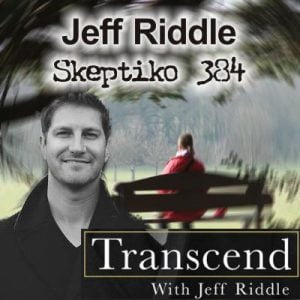Unveiling the Essence of Transformation: Insights from Skeptiko’s Interview with Jeff Riddle
 In a thought-provoking episode of Skeptiko, hosted by Alex Tsakiris, Jeff Riddle, a visionary in the realm of personal transformation, shares his unconventional perspectives on coaching, self-help, and the journey towards personal growth. This in-depth analysis delves into the key points of their discussion, unraveling the complexities of transformation and skepticism.
In a thought-provoking episode of Skeptiko, hosted by Alex Tsakiris, Jeff Riddle, a visionary in the realm of personal transformation, shares his unconventional perspectives on coaching, self-help, and the journey towards personal growth. This in-depth analysis delves into the key points of their discussion, unraveling the complexities of transformation and skepticism.
1. Challenging the Life Coaching Industry
Jeff Riddle’s critique of the life coaching industry marks a significant point of debate. He argues that the industry has lost its way, deviating from its original purpose of guiding individuals towards their goals. Instead, it often perpetuates the very problems it seeks to solve. This viewpoint raises essential questions about the current state and effectiveness of life coaching methodologies.
2. A Unique Approach to Personal Transformation
Riddle introduces a distinct approach to personal transformation, stepping away from traditional coaching methods. His philosophy emphasizes the need for a more profound, introspective journey, contrasting sharply with mainstream practices focused on goal setting and positive thinking. This divergence invites a re-examination of what true transformation entails.
3. Questioning Traditional Self-Help Methods
The conversation takes a critical look at the effectiveness of conventional self-help approaches, particularly those popularized by figures like Tony Robbins. Riddle expresses skepticism about these methods, suggesting they may not be as transformative as they claim. This skepticism presents an opportunity to reevaluate the impact of popular self-help strategies.
4. The Role of Pain in Transformation
Riddle emphasizes the significance of pain in the transformative process, a perspective often overlooked in the coaching industry. He suggests that embracing and understanding one’s pain is crucial for genuine growth, challenging the more widely accepted focus on positivity and success.
5. The Irrelevance of a Coach’s Personal Experience
In a striking viewpoint, Riddle contends that a coach’s personal experiences and background are largely irrelevant to the client’s transformation. This stance contrasts with the common belief in the importance of a coach’s journey and expertise in guiding others, sparking a debate on the true role of a coach in personal development.
6. Redefining ‘Transcendence’ and Transformation
The discussion on ‘transcendence’ and its connection to transformation raises profound questions about the nature and direction of personal growth. This part of the conversation explores the deeper meanings of transcendence and challenges the listener to rethink conventional understandings of personal development.
7. Embracing Skepticism in Personal Growth
The role of skepticism in personal development is a recurring theme in the conversation. Riddle and Tsakiris discuss the importance of questioning beliefs and assumptions as a critical part of the growth process. This approach contrasts with more dogmatic methods that advocate for unwavering belief or acceptance.
These insightful points from Skeptiko’s interview with Jeff Riddle offer a fresh perspective on personal growth and transformation. The conversation encourages listeners to reevaluate their views on coaching, self-improvement, and the journey towards self-discovery.
To delve deeper into this compelling conversation, check out the Jeff Riddle, Transcend Experience, Always in the Middle |384|.
Also read: Jeff Riddle Biography





